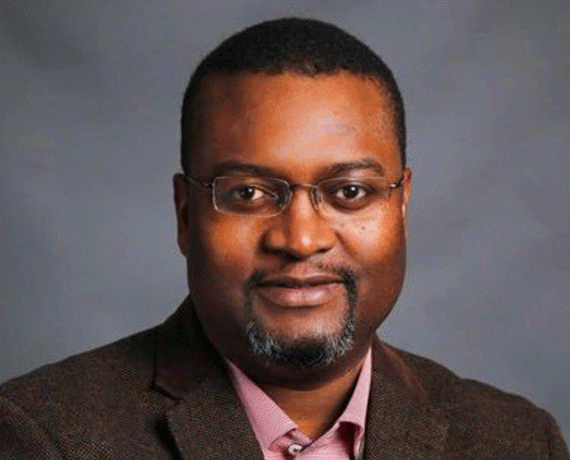
By Paul Kaseke IT has been a year since my last piece, and I had no intention of writing another any time soon, but this specific piece is one borne out of a sense of duty and inked by a heavy heart. I was moved to write again after receiving the gutting news of Alex Magaisa’s passing. Magaisa was a prolific storyteller and writer which makes penning this a difficult task.
Where does one even begin to pay tribute to such a giant? For me, this is a personal loss because my very entry into legal commentary was because of the example he set. It was not fashionable to provide legal commentary in the Press especially when the legal commentary tackled government misconduct, but he pioneered a movement that would inspire many legal minds to share their understanding of the law with the public.
My first critical legal opinion piece in 2016, was a criticism of then Local Government minister Saviour Kasukuwere and his suspension of mayors. The idea for the piece was inspired by Magaisa who had penned something along the same lines. The only difference was that he took a general constitutional view to the matter, and I zoned in on administrative law, an area of my specialisation. I was terrified to say the least.
There was, on the one hand, the fear of what my legal opinion would invite and on the other hand, the anxiety of opining on a matter that a legal giant had already weighed in on. True to his nature, he embraced and shared my opinion on his Twitter page which emboldened me and reassured me that I had made the right choice to step up and be heard.
Behind the scenes, he reaffirmed my legal position and encouraged me to continue to share my thoughts on such matters. Most legal minds with his qualifications and expertise would probably not think twice about engaging a junior in the way he did but he was a man who loved encouraging young people, so he generously affirmed me.
What made his legal commentary stand out for me is that it was less legalistic and academic in presentation but cushioned with historic context and worded in everyday English. In that sense, he provided a rounded view of the law and made it accessible to people with no legal background. He did not feel the need to use legalese and big words to demonstrate how knowledgeable he was. He was very down to earth and, unlike many of us, he preferred no title to his name. If he had his way, he would rather be called Alex and not Magaisa.
The good doctor was a rich source of history in his own right, and this became one of the seminal features of his famous Big Saturday Read (BSR). The BSR which started as an occasional blog, grew to become an authoritative read that most relied on for simple yet objective legal analysis. This popularity led to many media houses republishing his pieces as often as he posted them.
As a lawyer, Magaisa probably believed in the art of law-fare, that is, the use of law to fight. As a firm believer of the rule of law doctrine, Magaisa believed in the use of the law to change Zimbabwe for the better. This explains why he was instrumental in the drafting of the 2013 Constitution. It is this love for constitutionalism that was behind many of his suggested solutions to the problems Zimbabwe faces. Hope against hope, he dared to believe that change would come through the use of law as an instrument for change. Unfortunately, like many heroes before him, he would not live to see this change.
- Chamisa under fire over US$120K donation
- Mavhunga puts DeMbare into Chibuku quarterfinals
- Pension funds bet on Cabora Bassa oilfields
- Councils defy govt fire tender directive
Keep Reading
We canvassed many discussions with Magaisa, such as the shameful lack of legal literature developed for the Zimbabwean context. Many may not be aware of this but possibly 90% of texts used in Zimbabwean law schools were written with the South African legal landscape in mind. Thus, our law students rely heavily on South African material. One of our pipedreams was to author a text on Zimbabwean public law (focusing primarily on the Constitution) but this is a dream we will have to make possible without him. It was his desire to see the standard of our legal education rise and this is something we all had a vested interest in making sure it becomes a reality.
Magaisa often acted as an older brother in the constitutionalism movement, if one can call it that and would use humour to advise and correct. I recall writing something about the MDC-T (as it was then) and being burnt on the coals for it by Eddie Cross in an email exchange where a number of diasporans were copied in.
I was puzzled and maybe even traumatised by the scathing criticism I received in that email thread but when I confided in Magaisa about this, he laughed it off as something that happened to him many times before. This, I believe he did with the intention of making me realise that a difference of opinion is to be expected and should not create camps of divisions as we push for a more democratic Zimbabwe. His eye was always on the bigger prize, and this was reflected in all my engagements with him.
In 2016, I embarked on my PhD journey and the passion for constitutionally-driven transformation that he ignited in me, inspired me to write on the right to administrative justice in the 2013 Constitution. I picked his brains several times on this to get clarity on the thinking behind the creation of the right because it is the world’s most detailed constitutional right on administrative justice.
He benevolently shared as much as he could. Unsurprisingly, when I completed my doctorate in 2019, I recognised him as one of the driving forces behind the thesis. Thankfully, I got to share a copy of this with him before his passing and the dedication remains public.
One may be forgiven for thinking all this means we were always on the same page, but this is not true. We differed on various matters. For one, I held (and possibly still hold) the view that once one becomes publicly aligned with a political party, it is difficult for the public to view their analysis as objective but that is a view that I hold because of my own personal stance on politics generally. For that reason, I am not aligned to any party. He on the other hand, was aligned to the opposition and made no apologies about it.
Notwithstanding our differences on this aspect, we maintained a healthy respect for our respective choices. Perhaps more importantly, we disagreed on legal interpretation in some respects and our opinion pieces would reflect this but respectfully so. He was, in the bigger scheme of things, a tolerant man, open to divergent views and for this reason, our differences did not separate us. This is a lesson for us as a nation — to remain united in the face of our differences.
I always knew I had a voice, but it would be remiss for me not to acknowledge that as far as legal commentary and opinions in the Press are concerned, Magaisa gave me the confidence to share that voice that would otherwise probably remain hidden.
There is a generation of young people who found their voice amplified through Magaisa and that will be one of his lasting legacies. In my own small way and as part of that generation, this is a tribute to the giant. The best appreciation is to continue from where he left off and continue to encourage public discourse on our Constitution and laws.
I cannot promise to follow in his footsteps because that would do him no justice, but I can promise to continue to discuss the law as plainly and simply as I can and in my own way, contribute to the development of our country.
Like a shooting star flying across the sky, so fast, so far, gone too soon. Yours was a life well lived. Rest in power, Musaigwa.
- Paul Kaseke is a legal adviser, commentator, policy analyst and former law lecturer with the Wits Law School & Pearson Institute of Higher Education (formerly Midrand Graduate Institute). He is currently a sessional lecturer with Wits University’s Centre for Part Time Studies, Wits Business School and the IIE MSA. He serves as senior managing partner and current group chair of AfriConsult firm. He writes here in his personal capacity. You can give him feedback via email: [email protected] or follow him on Twitter @paulkasekesnr








